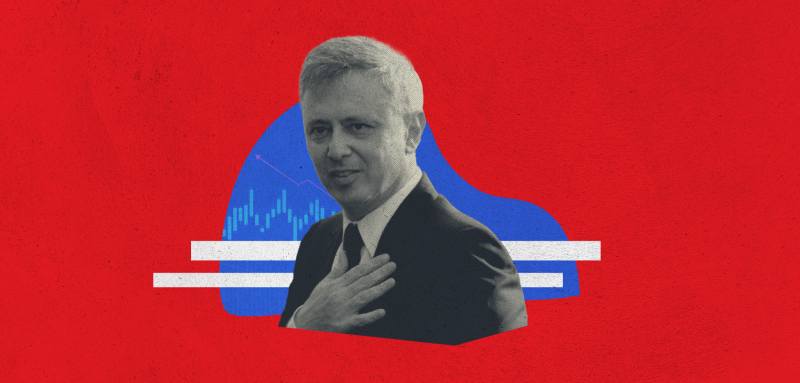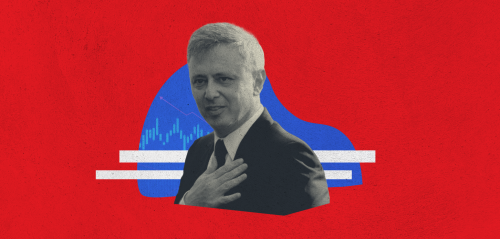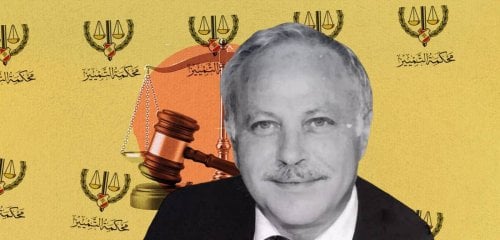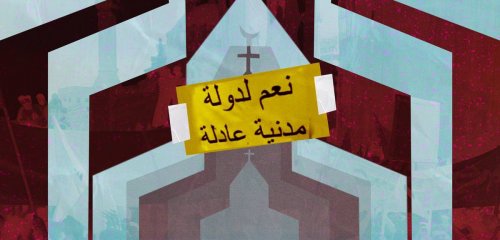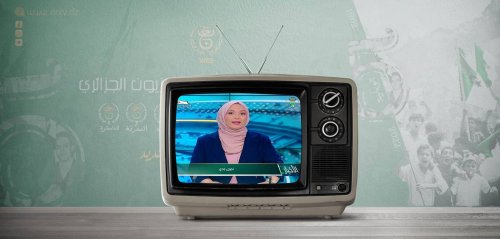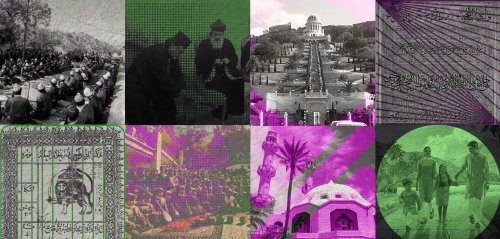Centuries ago, the French king Louis IX viewed the Christians in Lebanon as part of "France". He helped and supported them by sending them gifts, but more importantly, he pledged to protect them in a clear and explicit letter dated May 1250, in which he stated: "We are convinced that this nation known as the Saint Maroun people is part of the French nation."
Since the year 1500, France has been receiving privileges in Lebanon and has established very special relations with the Christians. According to a book published in Paris by the Lamartine publishing house by author Michel Chedan-Khalifé entitled "France and Lebanon: 1920-2020, a Century of Solidarity", "France's relationship with Lebanon began to take hold and strengthen when Paris obtained the 'system of privileges' from the Ottoman Empire, where King Louis XIV appointed Lebanese Maronite Christians from the Al-Khazen family as consuls in Lebanon, with the aim of encouraging trade between his country and the Ottoman Empire, which later led to significantly strengthening the bonds between the Christians of Lebanon and France."
Paris is adopting a presidential settlement in Lebanon to end the presidential vacuum, leading to the election of the head of the Marada Movement, Suleiman Frangieh
From a "caring motherly figure" to an ally of Hezbollah
Throughout the previous years, France has been known in Lebanon as the "caring motherly figure" for Christians in particular, and the visit of French President Emmanuel Macron to Beirut after the port explosion in 2020 carried great emotional significance in the hearts of Christians, especially since the many of the areas affected by the explosion were Christian areas.
Raseef22 had dedicated a report that contextualizes the historical relationship between France and Lebanon and its prominent transformations during several prominent periods.
But with France entering the line of Lebanese internal and domestic politics in detail, following a long absence due to changes in the Lebanese balance of power and Paris' adoption of a presidential settlement in Lebanon to end the presidential vacuum, leading to the election of the head of the Marada Movement, Sleiman Frangieh, an ally of Hezbollah and Syria, as President of the Republic, the relationship between Christian forces and France began to change, especially those who are rejecting Frangieh's arrival.
The relationship quickly deteriorated until it exploded a week ago, with a statement by the head of the Lebanese Forces party (one of the largest Christian parties in Lebanon), Samir Geagea, who directly said, "There is a deal of economic interests between France and Hezbollah that begins with oil, gas, facilities, and public ports in Tripoli, Beirut, and the areas between the two cities, and France currently supports the party's candidate to be able to obtain that."
The criticism of France by Lebanese Christian parties has greatly expanded. Before Geagea's statement, the head of the Kataeb party, Samy Gemayel, visited Paris two days earlier to discuss the Lebanese presidential file, and after hearing a clear statement on its support for Frangieh, he said in a statement: "I hope Lebanon will not be handed over to Syria, Iran, and Hezbollah, and we consider that Lebanon needs France to be supportive of its free decision and to reject any dictating on the Lebanese people, and they cannot impose candidates on us."
The verbal attack against France did not stop at political statements. On April 27th, the families of the victims of the port explosion had something new to say on the matter. William Noun, the brother of Joe Noun who was killed in the August 4th explosion, said, "The French state is obstructing the international investigation into the port case, and the French president is a liar and is only strong in propaganda, and he is with Hezbollah in this case."
Thus, in the eyes of major Christian parties, France has turned from a "caring motherly figure" for Christians to a close ally of Hezbollah.
"France has chosen.. and we will not change our convictions"
Tony Noun, the lawyer and head of the Popular University in the political development apparatus of the Lebanese Forces, does not believe that Christians have changed their view of France. He says, "Rather, it is Paris that has decided to go against the sovereign political line that the Lebanese Forces represent and have been working towards since its establishment." He points out to Raseef22 that France is not against Christians, but rather is against the political line that we represent.
"France talks about democracies, freedoms, and the sovereignty of states, but works against them. Therefore, it is working against its own convictions and is aligning itself with Hezbollah, all for its economic interests"
He adds, "The Free Patriotic Movement's problem with France is not like our problem with it. They are against France because it did not choose their leader Gebran Bassil as a candidate for the presidency, just like how the movement's problem with Hezbollah is due to the fact that they chose Frangieh instead of Bassil. Rather, our problem as the Lebanese Forces with France is its support for the line that has brought the country to destruction, chaos, and devastation. Continuing in this path will lead to more destruction as well."
For Noun, "France talks about democracies, freedoms, and the sovereignty of states, and acts against them. Therefore it is working against its convictions, not ours, all because of its economic interests that require supporting those against us, and it is natural for us to be against it and against anyone who walks in the opposite direction of our clear line, which aims to build a free, sovereign, and independent state," stressing that the Lebanese Forces do not compromise when it comes to their convictions, and their leader, Samir Geagea, went to prison defending these convictions.
He says, "The Lebanese Forces build political understandings if they serve their strategic vision, as they did in 2016 with the Free Patriotic Movement, which violated the understanding that stipulated the necessity of correcting the imbalance in Christian representation in the state, as well as working to unify the weapons in Lebanon, and resolving the issue of defensive strategy," pointing out that France's return to its previous, historical line is the way to end the dispute.
There is a lot of talk about French interests that the administration in Paris seeks to achieve, which emerged after the Beirut port explosion in 2020, to the extent that France was accused of aligning with Hezbollah to achieve these interests.
The French interest in the Lebanese oil and gas sector is confirmed through the significant role played by the "Total" company in drilling for gas in Lebanese waters, as the company is supposed to launch drilling operations at the beginning of next fall. Its interest is also evident in the port of Beirut, which was realized in February 2022, through the French shipping group "CMA CGM", which obtained a contract to manage, operate, and maintain the container terminal in the port of Beirut for ten years, noting that this group is owned by the Lebanese-French Saadeh family.
Likewise, the same company almost obtained the postal sector in Lebanon, but the intervention of regulatory bodies brought the file back to the starting point, and it is not known whether the French company will participate again in the tender for this sector or not. All this is aside from news that talks about French interests in the banking, electricity, renewable energy, public transport, and airport sectors, among others.
A relationship that wasn't always sweet as honey
France was a sponsor of the Kaymakam system and the Mutasarrifate system in Lebanon, and then moved to the role of the Mandate with the declaration of the Greater State of Lebanon.
"The Lebanese Kataeb Party does not support speaking on behalf of a sect or denomination, especially in the approach to the relationship with France, as this relationship, like any relationship with any other country, is based on interests," says Patrick Richa, the media official of the Lebanese Kataeb Party.
Richa goes back in history to the nineteenth century when France was a protector of Christians, but he reminds us that France's role changed with changing circumstances and history. In modern history, it was a sponsor of the Kaymakam system and the Mutasarrifate system in Lebanon, and then moved to the role of the Mandate with the declaration of the Greater State of Lebanon in 1920, without hiding its role in establishing state institutions, regulatory bodies, and others. Ee should also not forget, according to the party official, that before the establishment of the Kataeb Party in 1943, when its members were Lebanese nationalists, it was struggling and fighting for the liberation and independence of Lebanon, specifically from the French.
Richa confirms to Raseef22 that "the relationship with France has not always been a sweet relationship full of love with Lebanon, and what we are experiencing today is a new stage of the relationship."He adds, "Their system in the past was hesitant to support the Lebanese cause and support Christian parties, even in the nineties and the beginning of the new millennium, the late French President Jacques Chirac was a supporter of Rafik Hariri, at a time when Christian leaders were in exile and prison, and there was an exclusion of the Christian role in the government and the handing over of Lebanon to the Syrian guardianship and occupation during that period, also under international sponsorship, and France was in agreement with this."
He adds, "After the withdrawal of the Syrian army and support for the political process of independence in Lebanon, France returned to be a fundamental ally of the sovereign forces, which retreated somewhat due to all the bloody events that occurred after 2005, and of course, the international community and France aspire to speak with people who can influence Lebanon's decisions, and in our current circumstances, France may have concluded that there is no solution except as what Hezbollah wants."
He refers to "the visit of the party's leader, Samy Gemayel, to Paris more than once, with the aim of clarifying the position on the French approach, even though France has its own vision and interests, but all this remains a mere point of view if there are no main players in Lebanon to support any decision, and the opposition forces in Lebanon are still standing, and therefore there has been no breach in any front regarding the presidency."
If France continues with this approach, according to Risha, it would be a "wrong approach, and we will continue to tell it that it is wrong in what it is doing, and we will always communicate and be in contact with anyone who has a commitment that aligns with our point of view regarding the sovereign files we are holding."
Risha stresses, in conclusion, that "talking about France as a whole may not be accurate. Today, we must distinguish between the rule that comes with its own agenda and perspective on interests, and the deep state represented by traditional diplomacy and the foreign ministry along with agencies that deal with foreign affairs, for example, with the country of France", alluding to the existence of a divergence of views between the French presidency and Ministry of Foreign Affairs, which makes it difficult to speak about a country like France, which has a long history in freedom and democracy, as one single "block".
Raseef22 is a not for profit entity. Our focus is on quality journalism. Every contribution to the NasRaseef membership goes directly towards journalism production. We stand independent, not accepting corporate sponsorships, sponsored content or political funding.
Support our mission to keep Raseef22 available to all readers by clicking here!
Interested in writing with us? Check our pitch process here!
